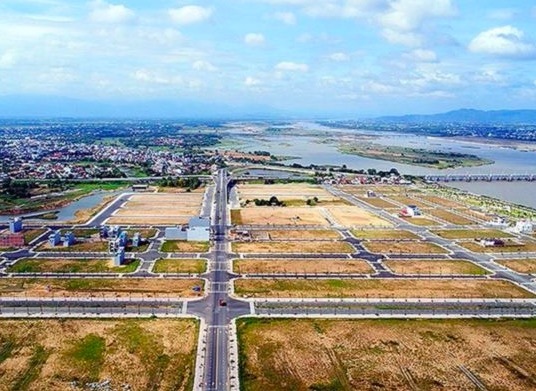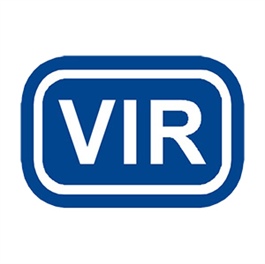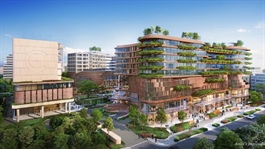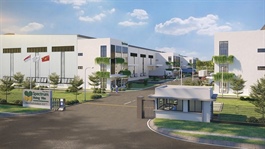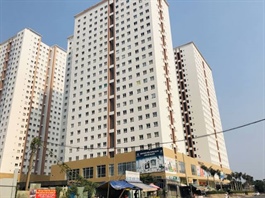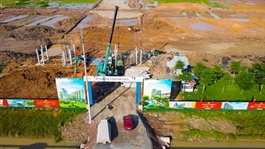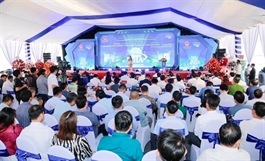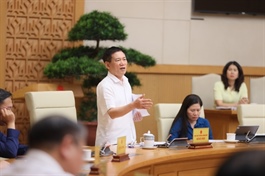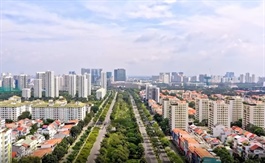Key trends shape industrial property
Key trends shape industrial property
Vietnam is expected to undergo a transformation in how it builds and operates industrial areas. Truong Gia Bao, vice chairman and secretary general of the Vietnam Industrial Real Estate Association, shared with VIR’s Bich Ngoc his insights on the key development trends shaping Vietnam’s industrial property sector.
Many localities and developers have started shifting towards greener, smarter, and more integrated industrial areas. Could you please elaborate on the significance for the market?

Truong Gia Bao, vice chairman and secretary general of the Vietnam Industrial Real Estate Association |
Next-generation industrial parks (IPs) are an inevitable trend towards sustainable development. Instead of merely focusing on infrastructure for lease, these projects aim to create a comprehensive ecosystem integrating production, living, and service functions.
Specifically, this model includes green manufacturing zones, smart factories, logistics hubs, research and development centres, workers’ housing, social amenities, and especially on-site renewable energy systems such as rooftop solar power.
Currently, around 20 green-smart IPs are being piloted in provinces such as Bac Giang, Binh Duong, Dong Nai, and Hung Yen. A typical example is Vietnam-Singapore IP III in Binh Duong, with an investment of $1 billion and a 200 MWp solar power system.
The proportion of IPs equipped with renewable energy infrastructure or circular water treatment systems has reached 28 per cent and is expected to rise to 45 per cent by 2030.
For overseas investors, these parks clearly demonstrate environmental, social, and governance (ESG) commitments. Many global corporations now choose to locate factories only in IPs that meet green standards to ensure their global supply chains comply with international environmental regulations. Therefore, Vietnam’s adoption of this model will help enhance its national competitiveness.
How does this new model differ from traditional ones in terms of planning, infrastructure investment, and operation management?
The core difference lies in multi-functional planning and digitalised management. New IPs are not just production zones but also hubs for innovation, logistics, workforce training, and technological advancement.
Infrastructure is comprehensively integrated with renewable energy, circular water systems, smart waste management, and real-time environmental monitoring. In particular, operations are digitalised through centralised data platforms, allowing investors to monitor, control, and optimise operational costs.
This approach transforms IPs into multi-value economic platforms, rather than merely physical infrastructure as in the past.
How will green and digital factors influence the competitiveness and value of industrial real estate in the coming years?
These two factors not only influence but reshape the entire market. IPs adopting comprehensive green management and digital transformation models achieve higher operational efficiency, lower energy costs, and easier access to green financing.
According to PwC Vietnam’s 2025 ESG Practice Progress Survey Report, 60 per cent of foreign investors in Vietnam consider ESG criteria a mandatory factor when choosing investment locations.
Digitally managed IPs typically reduce operating costs by 15-20 per cent and increase labour productivity by about 10 per cent. At the same time, global investors, especially ESG funds, now prioritise green and smart standards in project evaluations.
Hence, in the near future, the market value of industrial real estate will no longer be measured by land area, but by sustainability, automation, and operational efficiency.
What policies should be prioritised or introduced to accelerate the development of IPs aligned with new foreign investment trends?
We believe a systemic policy framework should focus on several key pillars, including institutional reform in terms of streamlining procedures, and infrastructure planning to synchronise transport, energy, and logistics development.
Other aspects include green finance, which offers credit incentives and tax reductions for ventures meeting ESG standards; and human capital, which provide specialised training in IP management, digital technology, and renewable energy.
In addition, a pilot mechanism for smart, green, and integrated IPs similar to high-tech zones should be introduced to create exemplary models for nationwide replication.
- 19:00 29/10/2025






